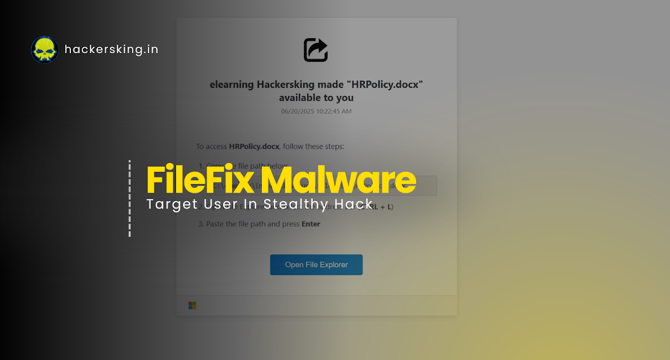Hackersking
2w
416

Image Credit: Hackersking
New Malware FileFix That Exploits File Explorer to Execute PowerShell Commands
- A new malware variant named FileFix has been discovered, exploiting a phishing trick to run hidden PowerShell commands through File Explorer.
- FileFix uses a fake file-sharing page to lure users into running PowerShell commands disguised as routine file access.
- The malware doesn't require malicious downloads, instead relies on a phishing page mimicking trusted platforms to trick users.
- By hijacking the clipboard, attackers can execute PowerShell commands when users unknowingly paste a file path into File Explorer.
- The exploited PowerShell commands can silently run code or open URLs on the victim's system without detection.
- FileFix prevents users from uploading real files by blocking file selection attempts and resetting the input automatically.
- To stay safe, users are advised not to paste file paths from unknown sources, avoid sites manipulating clipboard content, and be cautious of copy-pasting commands.
- Endpoint protection tools that monitor PowerShell activity are recommended to enhance security against such malware attacks.
- FileFix demonstrates a new approach of exploiting human behavior rather than traditional vulnerabilities, emphasizing the importance of vigilance and verifying sensitive actions.
Read Full Article
25 Likes
For uninterrupted reading, download the app